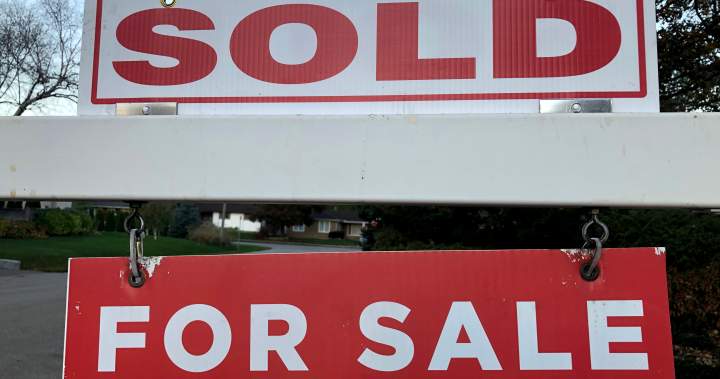Rents are falling across Canada and so are home prices, leading many Canadians to wonder if the time is right for them to make the jump from living in a rented home to home ownership.

The average asking rent for all residential properties in Canada fell by 2.7 per cent in June, compared with this time last year, to $2,125 a month. Combined with a soft housing market, this could offer opportunities for anyone looking to become a homeowner.
“Current market conditions certainly offer an opportunity to get into the ownership market, if that’s something you’ve been considering for a while,” said Penelope Graham, mortgage expert at Ratehub.ca.
“Mortgage rates are softer than they’ve been (typically). They’ve come down considerably from the peak that they hit in the fall of 2023.”
Recent Statistics Canada data suggests younger Canadians are also building up financial resilience, despite the economic uncertainty caused by U.S. President Donald Trump’s tariffs.
Story continues below advertisement
“The debt-to-income ratio is actually dropping for people under 35 from 201 per cent down to 187 per cent, suggesting it is a good time because incomes are finally outpacing debt. So that does give young people more room to plan for home ownership,” said Nicole Lechter, senior real estate analyst at RSM Canada.
“Middle-income Canadians are quietly rebuilding. There’s a 20 per cent surge in net savings.”
Royal LePage spokesperson Anne-Elise Cugliari Allegritti said that “home prices are down nationally about three and a half per cent from the peak in Q1 of 2022.”
“Over that same period, salaries have gone up nationally, an average of almost 12 per cent. Canadians have this opportunity, especially in the more expensive markets that have historically been more difficult to get into,” she said.
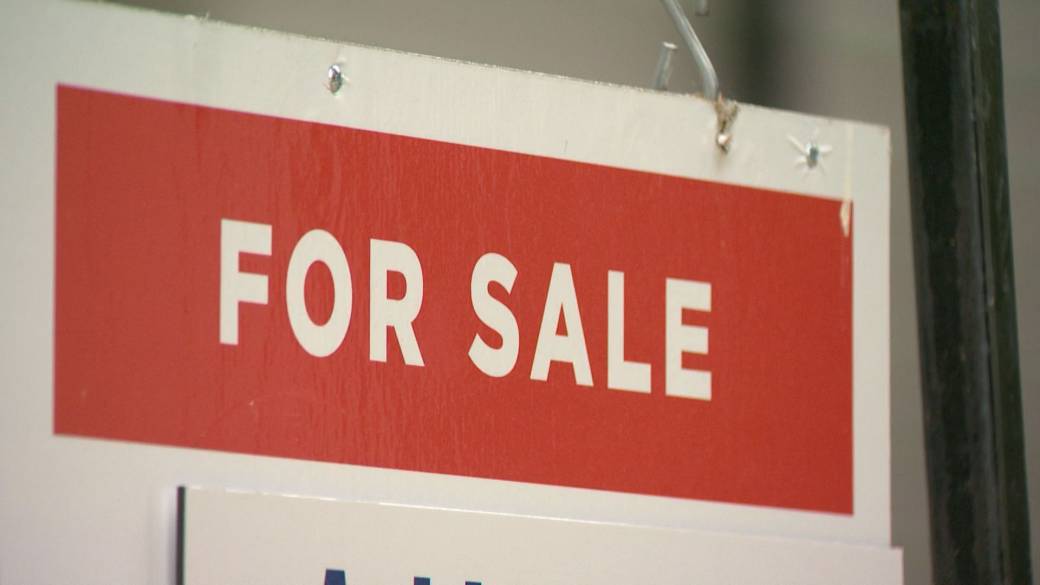
1:58
New realtor trends emerging as housing market cools
Down payment biggest challenge
According to Ratehub.ca’s monthly affordability report, while mortgage rates went up in most Canadian markets last month, they still remain just over that four per cent mark. The interest rate for the average five-year fixed mortgage was 4.48 per cent, according to the report.
Story continues below advertisement
This means that for many Canadians, depending on where they rent and where they are looking to buy, their monthly mortgage cost could very well end up being lower than what they pay in rent.
Despite the drop, rents remained 11.9 per cent higher than they were in June 2022 and 4.1 per cent higher than in June 2023.
“The truth is a lot of people who are renting can afford a mortgage. It’s the same monthly outlay. If I’m paying an inflated $3,200 (per month in rent) for a condo, I could surely afford a mortgage of a similar amount. But in order to have that rent turned into a mortgage, I first need this big chunk of capital,” said Cindy Marques, a certified financial planner who works with millennial clients looking to become homeowners.
And for some, taking advantage of falling rent prices may offer a chance to save for that goal.
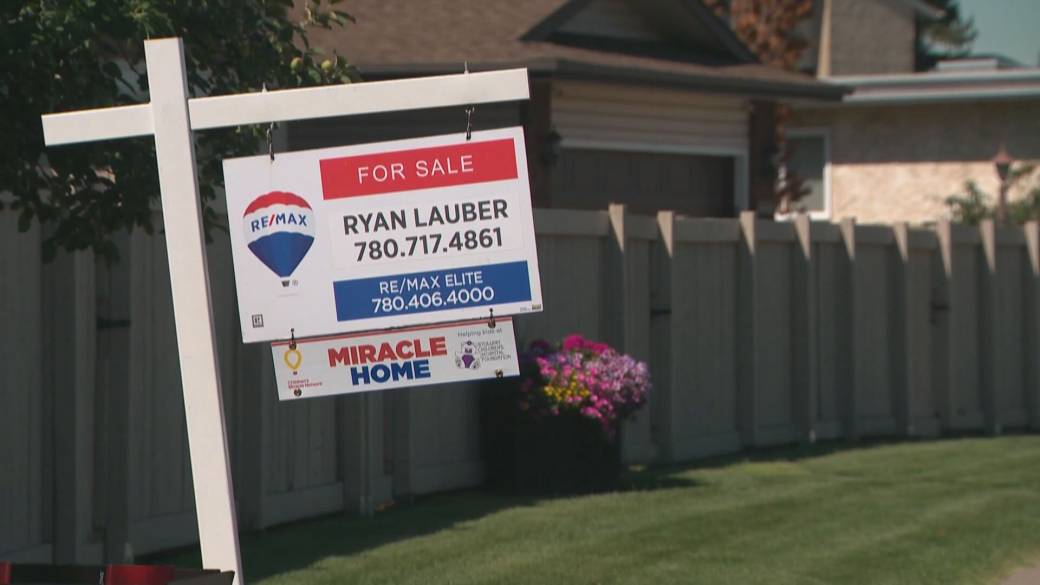
2:00
Business Matters: Canadian housing market on hold, CREA data shows
Can you find cheaper rent?
For the committed renter, there are cheaper rents to be found in certain markets.
Story continues below advertisement
Paying even a few hundred dollars a month less could help some people boost their savings and save up for that down payment.

Get breaking National news
For news impacting Canada and around the world, sign up for breaking news alerts delivered directly to you when they happen.
“It certainly can make financial sense, especially if it’s just the couple and they don’t have additional family members. If they have that flexibility, if you’re downsizing from rental to rental, there’s really nothing standing in your way there,” Graham said.
Lechter said that “renting isn’t losing. It’s a smart strategy.”
More on Canada
More videos
She added that the demand on the rental market from heightened levels of immigration is easing.
“We’re going to see further rent declines over the next 12 to 18 months. So that is a good opportunity to save,” she said.
Being a renter, especially if your lease is month-to-month, can give you some flexibility in being able to move easily and find cheaper rent elsewhere.
“You’re not going to pay any kind of penalties that you might if you owned your home and had to break your mortgage to do so. Downsizing the cost of living and boosting your ability to save will be beneficial if your goal is purchasing a home,” Lechter added.
Marques said she and her husband are currently renting a condo in Toronto, but they plan to move out of the city to pay less for rent.
Story continues below advertisement
“We’ve given ourselves the benefit of paying less now so that we can save up more and get ready for that lead up (to home ownership),” she said.
Lechter said condominium owners are feeling the pressure of the rental market, giving some power back to the renter.
“It’s also an opportunity if you’re a renter of a condo to go knock on your landlord’s door and ask for a reduction in rent because you have some power here,” she said.

0:48
How many coffees you need to stop buying to afford a home in Ontario
How much do you need to save?
How much you save for your down payment can determine a lot.
Story continues below advertisement
“It’s going to be one of the key factors your lender is looking at. It’s going to determine how much mortgage you’re going to qualify for and your overall budget,” Graham said.
Trending Now

Jimmy Kimmel delivers biting response to Trump’s ‘next to go’ threat

Will Bank of Canada cut rates next week? How new data factors into the call
“If you’re looking at purchasing a home at $1.5 million or more, you’re going to need at least 20 per cent down. If you are a first-time homebuyer, though, you’re likely at the lower end and saving up for that five per cent, or 7.5 per cent if you’re looking at a property over $500,000,” she added.
However, she said someone buying a home with less than 20 per cent down payment should consider the cost of mortgage insurance, which lenders require you to get if you don’t meet the 20 per cent threshold.
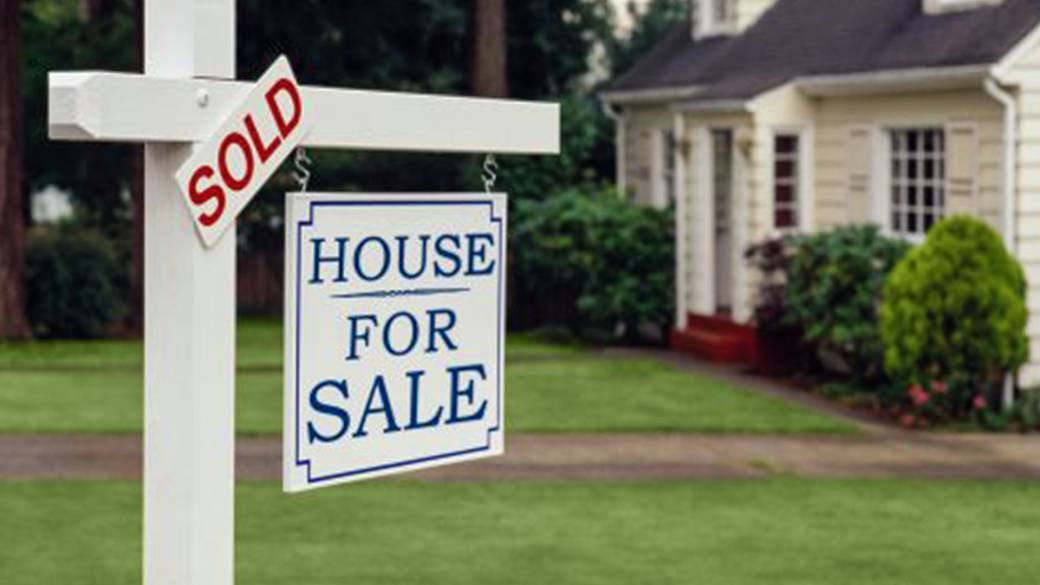
5:32
Real estate: Spring outlook and 2025 home trends
How to save for a down payment
If you’re able to save a few hundred dollars a month on rent, where should you squirrel those contributions away?
Story continues below advertisement
“The First Home Savings Account (FHSA) is truly the best thing that we’ve had offered to us. You’re getting the tax benefits of the RSP, where you get deductions on your contributions and the benefits of a TFSA. When you’re making withdrawal from your FHSA for the purposes of buying or building a qualifying home, there are no taxable consequences,” Marques said.
The FHSA is a tax-free savings account that allows first-time buyers to save up to $8,000 a year to put toward their down payment.
The time to open an FHSA is “as early as possible,” Marques said, but remember that you have a 15-year window to contribute to it.
To open an FHSA, you need to be a Canadian citizen or permanent resident 18 years of age or older.
You must also not have lived in a home that either you or your common law partner or spouse has owned for the last four years.
However, if you became common law partners after you opened your FHSA, you will be able to withdraw that money tax-free for a down payment when you are buying a home.
Marques recommended maxing out the benefits of the FHSA and tax-free savings account (TFSA) before dipping into your registered retirement savings plan (RRSP), since that is money that you typically want to save for retirement.
Story continues below advertisement
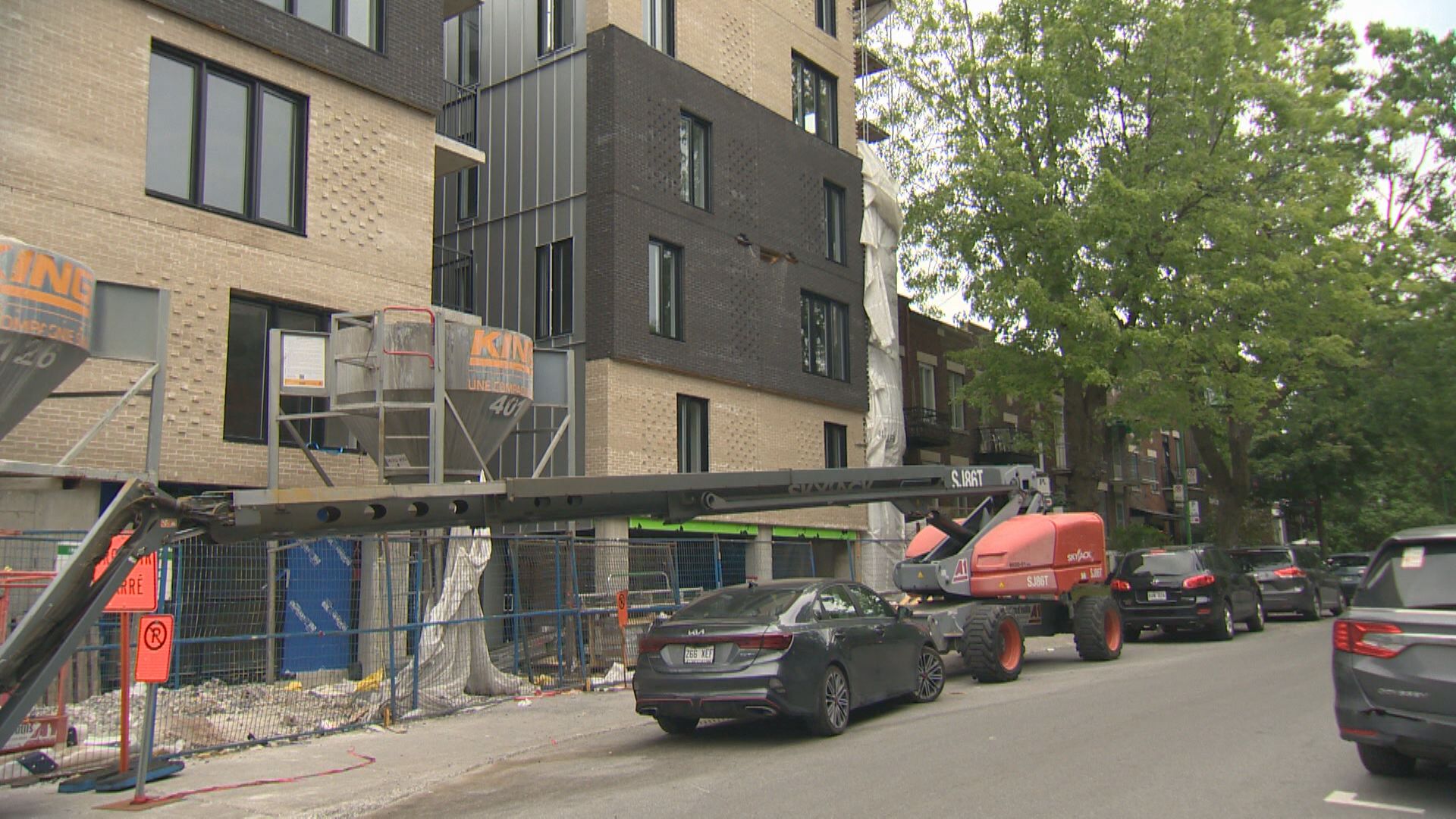
2:35
Frustrated and angry, Montreal condo buyers wait years for their units to be delivered
Could you live in a condo?
Canada’s condominium market is in a major slump, with some of the most expensive markets in the country going ice-cold.
In the Greater Toronto and Hamilton Area (GTHA), condo sale activity was down 91 per cent compared with the 10-year average in the second quarter of 2025, according to research from Urbanation.
Story continues below advertisement
Unsold inventory of condos has swelled to a record high in Q2, the report said.
But for Canadians with families and pets, tiny one-bedroom condos with cramped living spaces are simply not an option.
Lechter said one-bedrooms are not the only option on the condo market.
There’s one-bedroom, there’s two-bedroom, there’s three-bedroom condos,” she said.
“We’re seeing more resilient demand for bigger-sized condos. We’re also seeing that the purpose-built rentals that are coming back to the marketplace are gearing towards bigger units as well.”
Allegritti said, “I think that developers have really heard the need for larger units and we’re going to start to see a lot more of that coming onto the market in years to come.”

